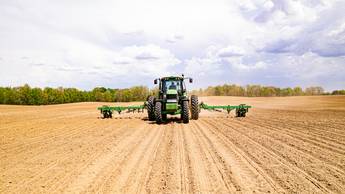Weiterführende Informationen
Top content
In Focus
Open house day of Environmental Systems Science
On June 24, 2025, we celebrated the Open House Day of Environmental Systems Science! Prospective students used the opportunity to attend real lectures, learn more about the the degree programs, and experience an impressive campus tour. Together with the current students, they also delved into current research topics and rounded the fantastic day off with a fabulous barbecue.
DFG Funds New Research Training Group!
Starting in October 2024, the Deutsche Forschungsgemeinschaft (DFG) will fund the Research Training Group "Ecological Regime Shifts and Systemic Risks in Coupled Socio-Ecological Systems (ECORISK)" for an initial period of five years. This will create a total of twenty doctoral positions and two postdoctoral positions at the university. Many of the participating scientists are members of the IUSF Research Center.

IUSF Workshop: Systems Science - More than just the sum of its parts!?
On February 8, 2024, an internal IUSF workshop took place at Universum in Bremen. Strategies for strengthening the research center were developed, common research interests were discussed, and connections to systems science were identified.
Osnabrück Scientific Society honors systems scientist

New funding awards from the University of Osnabrück go to systems scientists
The awards from the University of Osnabrück recognize the excellent achievements of students. In the academic year 2022/23, two systems scientists were successful. Domnik Lammers was awarded the scholarship prize by Intevation GmbH, and Venja Schoenke received the study prize from Felix Schoeller Holding GmbH & Co. KG! Congratulations on these prestigious honors!
Prof. Dr. Claudia Pahl-Wostl is one of the most cited researchers worldwide
It is a great honor for Prof. Dr. Claudia Pahl-Wostl and also a sign of the interdisciplinary research orientation at Osnabrück University: The environmental systems scientist is represented in the annual scientific ranking "Highly Cited Researchers" in the category "Cross Field (across disciplines)". See also the article in the Neue Osnabrücker Zeitung (in German language).
Prof. Dr. Claudia Pahl-Wostl twice as guest on the Second German Television
Prof. Dr. Claudia Pahl-Wostl is currently enjoying an increased media presence. On July 21 and July 28, she was a guest on Markus Lanz's evening TV show on ZDF.
Improving biodiversity in agriculture: IUSF participates in large-scale EU project.
Dramatic losses of biodiversity are also attributable to the way land is managed and the extent to which it is managed. The EU-funded project "FRAMEwork" aims to develop an approach in which farmers work together to improve biodiversity on European farmland in the long term. The environmental economists Prof. Dr. Stefanie Engel and Dr. Fabian Thomas, both from the Research Center Institute for Environmental Systems Research at the University of Osnabrück, are taking on an important sub-project to design incentives for farmers to participate in collaborative activities to increase biodiversity.
Research groups
Research groups: Read more
European integration and governance of sustainability in Europe and in the global transboundary space





















